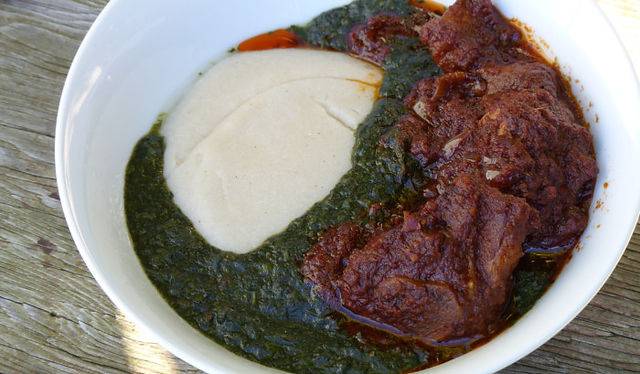Do you know how "Tou Zaafi" is prepared?
Revealing TZ cooking art in Ghana:
A cultural culinary delight
Introduce:
Ghana, a West African country rich in culture and tradition, has a diverse cuisine that reflects its history and heritage. One of the most beloved and iconic dishes of Ghanaian cuisine is TZ, also known as "Tuo Zaafi." This simple yet delicious dish has captured the hearts and taste buds of Ghanaians and visitors alike, offering a delicious journey into the heart of traditional Ghanaian food.
Nature of TZ:
TZ is a staple dish that holds a special place in Ghanaian homes. It is a starchy, paste made from fermented cornmeal or millet, then cooked and served with a variety of delicious soups. Its unique preparation and shared consumption make TZ a symbol of cheerfulness, often shared at family gatherings, celebrations and special occasions.
Preparation process:
The art of making TZ begins with the careful selection of high-quality corn or millet kernels. These grains are carefully cleaned, washed and then left to ferment for several days. Fermentation not only improves the taste and nutritional value, but also contributes to the characteristic sour taste of the dish.
After the grains are fermented, they are dried and ground into a fine powder, then mixed with water to create a smooth, elastic dough. This dough is molded into balls or portions and cooked in boiling water until it becomes the desired consistency. The preparation requires a certain ingenuity, because getting the perfect texture requires experience and intuition.
Side soup:
TZ is rarely enjoyed alone; It is often paired with a variety of hearty soups that elevate the dish to a culinary masterpiece. These soups include Ayoyo soup (made from jute leaves), peanut soup (made from peanuts) and okra soup (made from okra pods). Each soup offers a distinct flavor and nutritional benefit, making the combination a healthy, well-balanced meal. Cultural significance:
In addition to its delicious taste, TZ has deep cultural significance in Ghana. The act of cooking and sharing TZ promotes a sense of community and connection, symbolizing unity among family members and friends. The communal nature of TZ drinking encourages conversation, storytelling, and bonding, making it an integral part of social gatherings.
Modern adaptations:
Although TZ's traditional concoction is still deeply rooted in Ghanaian culture, there have been modern adaptations incorporating contemporary trends. Chefs and home cooks experiment with different ingredients and cooking methods, adding a unique touch to dishes. These adjustments help preserve tradition while keeping it relevant in the ever-changing culinary landscape.
Conclusion:
Cooking TZ in Ghana is more than just a culinary business; It is an expression of heritage, community and tradition. This beloved dish demonstrates the complex connection between food and culture, inviting people to enjoy not only the taste but also the stories and memories associated with it. Over the years, TZ culinary art continues to evolve, embodying the essence of Ghanaian identity in every dish.



No comments yet
Be the first to share your thoughts!